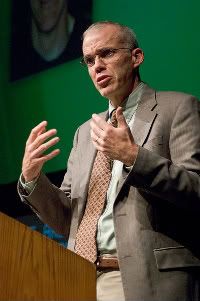OTEC Corporation — A Leader in Ocean Thermal Energy Conversion
As the name suggests, OTEC Corporation, whom I’m meeting next week on my trip back East, is one of the leaders in the development of ocean thermal energy conversion, a technology with huge potential to change the world energy picture. Best of all, these folks, while they’re true business professionals and leading scientists, are acutely aware of the environmental benefits that are at stake here.
Their website contains a wonderful section called “Common Ground” which begins with an excerpt from the writings of Amy Maddox: “Underneath We’re All the Same.” (more…)










